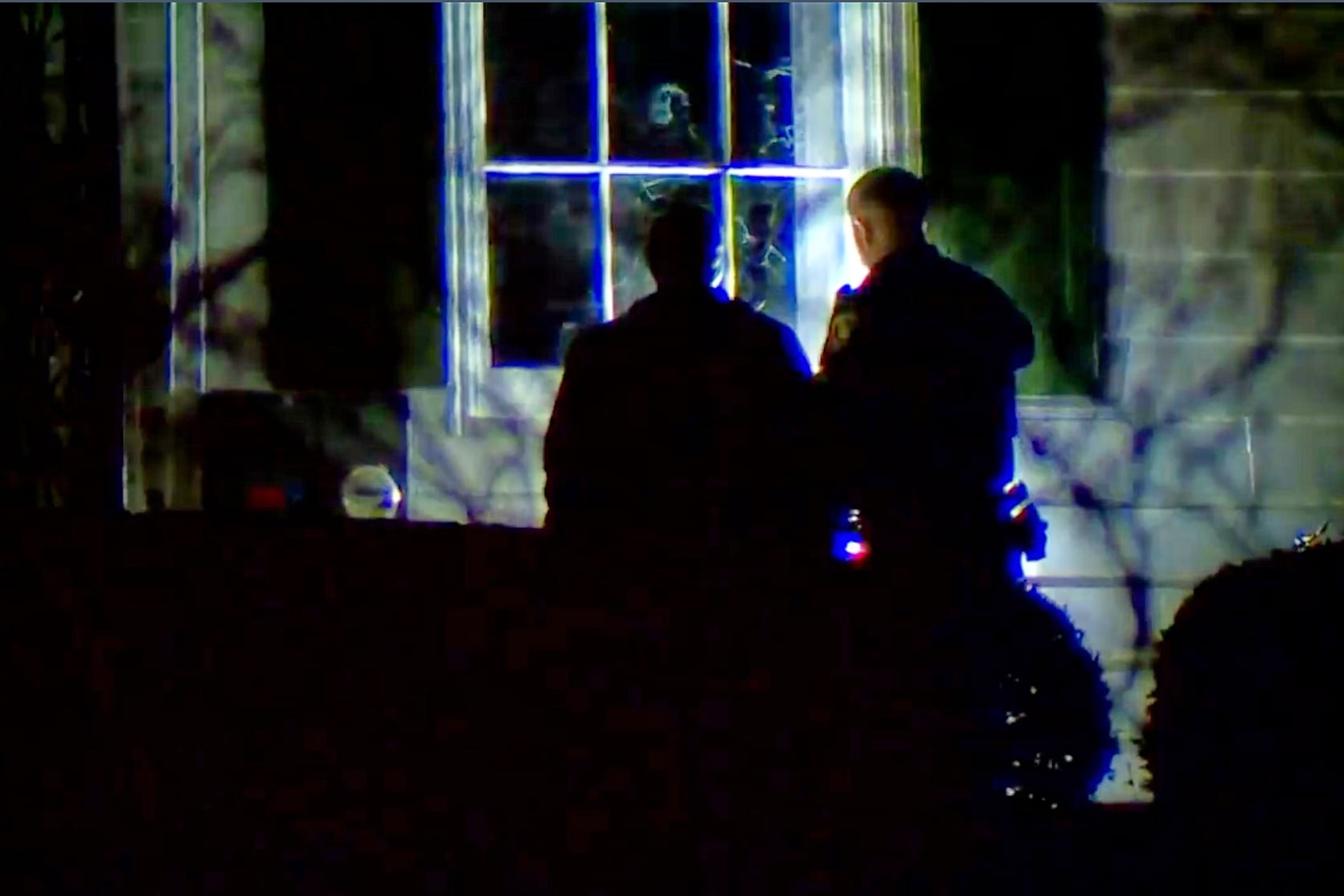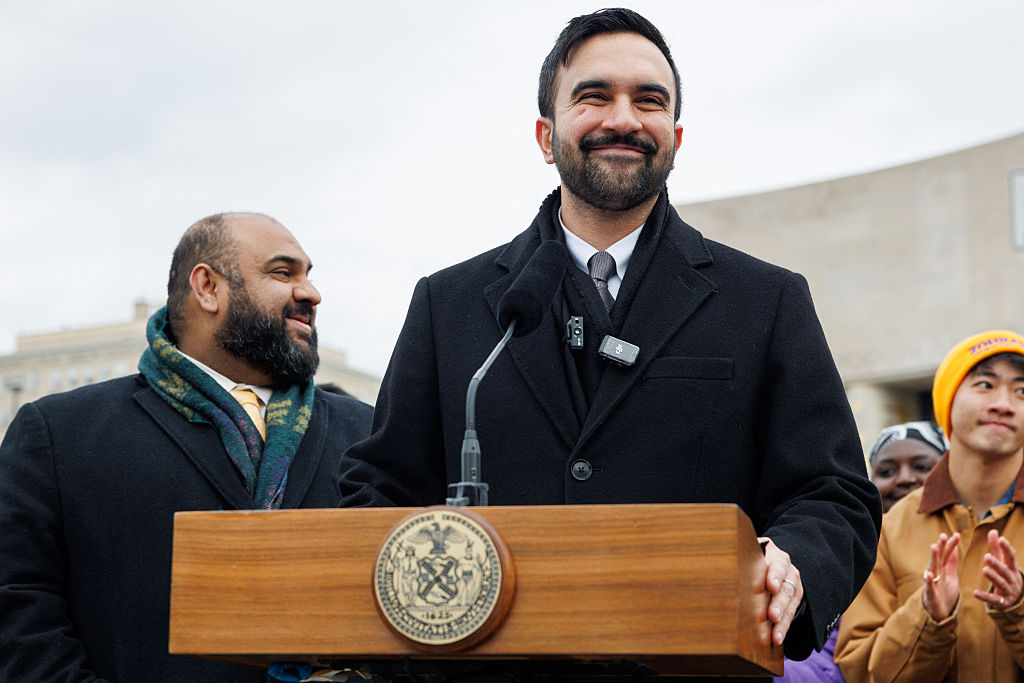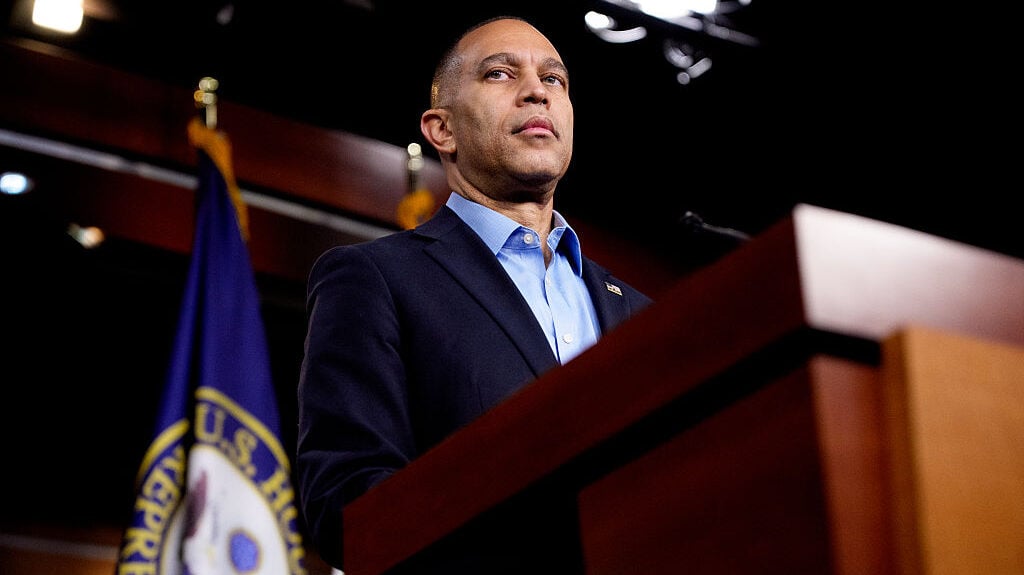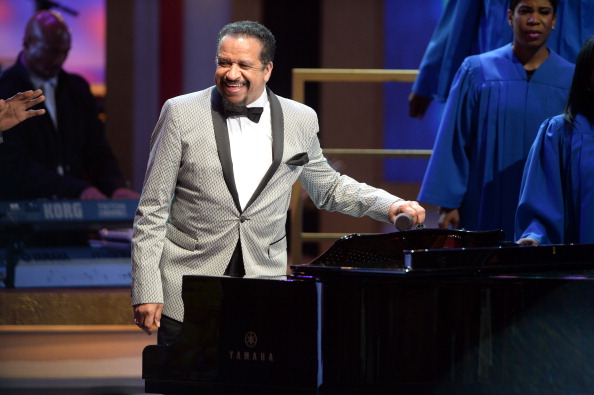Alan Porter is the ‘complete package’ of MLB umpiring

TORONTO — Baseball fans come in all shapes and sizes, along with all sorts of shortcomings and skillsets.
You’ve got the basics, who think every player should be giving maximum effort every play, every foot on the field, no excuses.
There are others, who have interacted with the game as a player even at the lowest of competitive levels. They often view the game through a wider lens, perhaps understanding the relationship between everyone on the field differently.
A third ever-growing population of fandom exists almost primarily in the statistical realm of the sport, preferring almost a simulated reality by which to look at baseball through numbers almost strictly.
Alan Porter appeals to all three.
Widely considered the best umpire in baseball, the 2025 World Series — which featured the Los Angeles Dodgers and Toronto Blue Jays — was a perfect example of his versatility and acumen overall.
In Game 5, working behind the plate, his accuracy was illustrious.
In Game 2, working at second base, his positioning and vision were summed up in one play that might not have seemed like much, but it was a critical juncture of the game. In the eighth inning, Dodgers rookie center fielder Andy Pages poked a one-out single up the middle. The next batter, Shohei Ohtani, hit a broken-bat single to right field that took a touch longer than usual to get to Blue Jays right fielder Addison Barger, who came up throwing.
Pages had rounded the bag, and he was almost thrown out from behind at second base on a bang-bang play that Porter was literally on top of. A quick safe signal was called. And while it was reviewed, the correct call was confirmed. Porter nailed it.
While replay has changed a lot of baseball, it hasn’t solved the need for umpires to be accurate. But if Porter gets that call wrong, and the Dodgers happen to be out of challenges, they’re in a two-out situation with one on as opposed to one out with two on, and one guy in scoring position. Pages and Ohtani ended up scoring, effectively putting the game out of reach for the Blue Jays. The Dodgers won 5-1.
In Game 6, umpires became a huge part of the discussion when the Dodgers’ Justin Dean threw his hands up in center field, resulting in a ground-rule double of some controversy. In Game 7 on Saturday, Porter was in left field, and when the benches cleared in the fourth inning he was in the mix trying to break things up.
For all of the skill on display last Saturday, Porter is at the top of the list regarding top performers.
“To give you a kind of a background of the rate of his progress, this is going to be his third World Series this year, right? And this is his 16th year,” Joe West, longtime Major League Baseball umpire, said Sunday.
West, 73, would know about progress. He umpired a league-record 43 seasons and 5,460 games before retiring in 2021.
“I didn’t work my first one [World Series] until my 15th year,” West said. “You can say, ‘Well, he worked more World Series because he, you know, he had a lot of guys retire and moved out of the game and they have had a lot of turnover in the last –,I want to say five, six years.’ But still, three World Series in 16 years is tremendous.”
“Cowboy Joe,” as West is also known — mainly because of his career as a singer-songwriter in the country and western world — is not just another umpire. He’s arguably the most famous umpire in the game’s history. To hear him talk about Porter is like listening to Star Wars’ Senator Palpatine talk about a young General Skywalker.
“You have to realize that [now] baseball is picking them [umpires] based on ratings, not on, you know, like when I first started. I got my first playoff because we were on a rotation basis. They had to put me in it because of the contract,” West said with a hearty laugh before Game 7, in which the Dodgers captured their ninth World Series title.
“You look at how this has evolved in his whole career, and it’s tremendous that he has this kind of respect from the league, to give him these events.”
The resume is impressive for Porter, who is 47. He was behind the dish for Jordan Zimmermann’s no-hitter against the Miami Marlins while pitching for the Nationals in 2014. You might recall that game from it ending with an incredible catch by Steven Souza Jr., at Nationals Park. That play was so great that Zimmermann bought the dude a car for making it.
Porter has worked every round of the playoffs, an All-Star Game, the MLB Little League Classic, the World Baseball Classic, the Omaha Classic, and the Rickwood Field Classic in Birmingham, Alabama.
“Just a complete package,” Mike Hill, senior vice president of on-field operations for Major League Baseball, said Saturday. “When you think of our best umpires, they’re complete umpires. Every aspect of the game, from their professionalism, how they manage the game, how they manage both dugouts, their ability to call balls and strikes, their knowledge of the rules and just commanding the game. I mean, that is ultimately the job of an umpire. To uphold the game.”
None of this is happenstance. When he first decided to put his mind to umpiring, Porter’s mission was to be the best, not just to have fun and hang around the game he loved.
“My goal was to get in and take it as far as I can take it. I like getting postseason [assignments],” Porter, the Philadelphia-area native, said before Game 6 on Friday, when he worked the right-field line. “And for my career, that’s what I want to do. I want to work the postseason, you know. I want to work these games.”

EDUARDO LIMA/EPA/Shutterstock
If it weren’t for the typical ups and downs of the American economy, he might have never been in this position. While he liked baseball as much as the next guy, it was a downturn of luck that brought him back to the diamond.
He was laid off from his day job.
Growing up, Porter was just a regular kid. He started playing the game as a 10-year-old, played in high school and followed his fledgling playing career as far as he could. It took him to a couple of junior colleges, and he eventually ended up at California University of Pennsylvania. Over the course of his career, he played every position at some point, other than first base.
When he lost his job a year into being a supply chain manager, Porter decided to make his hobby a job. He was young enough that it was still in the cards to make it a career, and some of the older guys he worked with insisted that he should give it a rip.
Porter was 23. Turns out it was one of the best decisions he ever made. He was in the top 25 of his class at Wendlestedt Umpire School, which means he was immediately placed professionally.
When we think of what the grind of professional baseball is like, we’re consumed with this idea of dudes riding buses across flyover states while everyone else is sleeping, or whatever the lore may be. For all the players eating baloney sandwiches in dingy clubhouses because that’s all they can afford, imagine being an umpire, who has to wear a bunch of protective equipment while trying to get things right as best you can. For Porter, that journey started in the Florida Gulf Coast League. A collegiate wood bat league, they play six days a week. That’s a physical challenge of a different sort for a league whose teams literally have names like the Tampa Blaze.
“This league runs from the middle of June to the middle of the end of August. And 12 o’clock games in Florida are hot,” Porter recalled, not so fondly. “So, Monday through Friday, we played 12 o’clock. Saturday was at 10 a.m., and this is all you’re doing. You’re doing this every day, and you’re getting used to what professional baseball looks like.
“So, that was my first year. Second year, I moved up to the New York Penn League. Now you’re in a little more minor league, where you have fans, and let’s call it the beer leagues, where they actually start selling concessions and stuff like that. So, then you get your taste of the fans, because Gulf Coast League is, I mean, I would say it’s kind of like spring training, where you probably have more scouts than you have fans.”
As an umpire, you’ve got to be quite motivated to watch no-names run around the field while you’re wearing a chest protector in the Florida heat in front of effectively nobody. But there is a purpose to the pain, and even some advantages to it. If you’re good, you might move up as quickly as some players — meaning one’s familiarity with the actual players improves, thus making one a theoretically better officiant of the game.
“You see [players] that you had for the last year.,” Porter said. “So we all kind of started the same, but you do start seeing some other guys. You see some guys that just came out of college you never saw before. But the biggest thing I learned is just that the game is the same,”
Porter remembers former Miami Marlins shortstop Hanley Ramirez being the first player he saw in the minors that he definitively knew was going to the majors.
“It’s just some things get faster. Guys make better plays,” Porter said. “They just need repetition, just like we do; it just takes time. The more pitches you see the more you kind of zone in. The more stuff that you see down there helps you to move on.”
When Porter was in the minors, the evaluation pattern for umpires was based less on metrics and more on the eye test, for whatever that is worth. Porter cuts a reasonably impressive figure physically and obliterates the old stereotype of some old guy with a huge gut limping around and making calls. It’s something he takes seriously, in terms of professional development.
“I love the fact that I am still in shape. You know, I work hard to try and stay in shape, and I love when those guys out there go like, ‘Damn man, you’ve been in the gym,’ ” Porter boasted with only a touch of non-humility. “I stay in the gym. I mean, I try to, especially in the offseason. I have my routine. I’m trying to go to the gym at least four times a week.
“I definitely like to be able to move out there [on the field]. There’s always times where you might miss a guy going out on a ball until like the last minute or something, and you have to get there. You know, you don’t like to be late, but I like to know that if I am late, I can still get there.”
For as much as he jokingly boasts about being ripped compared to most guys making calls, his humility and skill are well renowned. Even his punch-out motion is simple, with a small leg kick being the most extravagant thing he does routinely.
“You know, from a club standpoint, that you’re in good hands [with Porter officiating], and you know, nothing’s going to be missed and nothing’s going to go sideways, because you feel that the umpire is in complete control,” MLB’s Mike Hill said. “When I left the club side and came to the league side, you have similar types of wants.
“I think when you see someone that is hustling, that’s in the proper position, that is on top of everything, you also have that sense of comfort. Alan sort of exudes that when you’re watching the game. Those things jump out when they’re being done correctly.”

Patrick Smith/Getty Images
Porter is well aware that he’s been fortunate in his journey, and those roots as just another kid from suburban Philly are evident. West recounted a story about Porter that solidified just how self-effacing Porter can be away from baseball, even if he is a giant presence on the field.
“When he first started working with me in 2014, I think it was June. We went to Arizona, and we asked him about a hotel room. He said, ‘No, I’m staying with my grandfather,’ ” West recalled, reminding himself of his near disbelief. “’Really? Well, that’s OK.’ We get to the park. His grandfather was the security guard that used to walk us to the locker room. I knew his grandfather before I knew him. I thought that was kind of cute.”
If you’re wondering why anyone should ever care about an umpire beyond whether or not they get calls correct, you’re probably not the baseball fan you think you are. Baseball, at its core, is a game played and officiated by human beings. But because for whatever reason, the sport has allowed itself to be hijacked by the minute population of dorks who care more about the minutiae of accuracy than they do about the sport. Next year, we have the ABS (automatic ball and strikes) system entering Major League Baseball on a challenge level.
I could go on a whole extended rant about how if we let computers take over the game that initially had zero clocks of any kind to begin with, then at some point, we won’t actually be playing baseball anymore — just living in a simulation where everything is automated. But hey, at least it will be exactly correct! No thanks.
Umpires at the lower levels are part of how you learn to play, never mind call balls and strikes and/or make safe/out calls. The idea of instant replay was the proverbial opening of pandora’s box. And to be honest, I still don’t love the way it is deployed sometimes. If a person can’t see something without the use of a mega high definition and super slo-mo, then it probably isn’t a call that needs to be made anyways.
That aside, the concept of opening up the game to levels of scrutiny never before seen is obviously the elephant in the room in umpiring circles. The fear being that if we’re going to use umpires on a challenge basis, then by the time I’m dead and in the ground, then everything will be automated, eliminating the need for umpires all together, which would be a flat-out tragedy, if you ask me.
Nothing beats a good punch out on a bang-bang play, something Porter refers to as a “whacker.” The pageantry of handing out the lineup cards, the drama of ejections, all of it is just … what makes baseball what it is. The humans who do it are well aware of their potential impending extinction.
For this columnist, the answer is simple: If you want better umpiring, get better umpires.
“You have to take the good with the bad. I actually like to engage. And I don’t talk to anybody or anything, but I like to read what people say,” Porter said, noting that balls and strikes on the whole are not the most important thing on earth when it comes to managing a game.
“And I take it for what it is. I take the bad as somebody, he’s just a fan. He has no clue. So why even entertain it, right? No big deal. I have friends that are college officials and things, and, you know, they’ll reach out to me like, ‘Damn, you look awesome.’ Last night, I was like, ‘Dude, I felt like garbage.’ ”
This entire conversation gets to the core of what baseball fans want out of the game. If the accuracy of the K-Zone on their screen is their sole driving motivation for enjoying a game, then they should probably be playing MLB The Show video game, as opposed to watching the actual game. Fun fact: There are 10 umpires enshrined in Cooperstown, New York, at the National Baseball Hall of Fame.
“I might have called a pitch for strike three that technically is half an inch off the plate, but it’s in our acceptable zone, yeah. But when you’re watching that on TV in the postseason and you call a guy out on a strike that is off the plate, they’re not giving you any acceptable zones. It is what it is.” Porter said, earnestly. “I guess it [ABS] makes me more very aware of it. Obviously, I’m human. I’m not going to get them all right. But, I try.”
The chicken/egg theory of what should and should not be called a strike is a tale as old as time. Meaning, is the strike zone the same for everyone? Should it be? To actual fans of the game, this is what we call the “fun part.”
The most charitable view of the ABS situation for umpires gets back to something we hear a lot around the game. No one wants to get shown up, a.k.a. embarrassed.

Mary DeCicco/MLB Photos via Getty Images
Next year, players can go to a video review with just the tap of a helmet. There will only be two available per game, but considering the spotlight already on umpires these days, that’s enough to ruin someone’s day on either side of a call. Point being, getting something wrong is one thing. Getting it wrong and having to wear that mistake in front of a crowd — never mind the two teams competing — is not a position anyone wants to be in from a human nature standpoint.
“One of the best things that ever happened to umpires is that instant replay room in New York. Because everybody has to go work instant replay,” West, the retired umpire, explained. “You can go in and you evaluate how people are taking plays and looking at plays and, OK, you’re there. You’re there as a group.
“No. 1, the players think you’re trying to get all the plays right. So, your rapport with the players is much better than it ever was in the early days. But No. 2, you go in and watch how people take place, what position they’re in.”
Again, the entire art of umpiring is far more than just getting it right or wrong. The existential question of, “What is a better option: living with human error or acting like life is a simulation?” is not one for people who make umpiring their life’s work.
“The one thing that I do know [is that] our umpires are the most prideful men and women in the sport. That was something I didn’t have an appreciation for until I got the honor of working with them,” Hill admitted. “They’re extremely prideful, and they want to get every call correct, so we have worked hand in hand with them to try to give them every tool possible to allow them to be at their best.
“ABS is going to put them on direct display [with] player challenges, and if our umpire gets it right, I know they’re going to appreciate that because they’ve put in an immense amount of work to do their best on every pitch, on every call.
If there were more Alan Porters out there, we probably wouldn’t have gotten this far down the Yellow Brick Road of ABS. Plus, who doesn’t love to see guys get run, or ejected, every now and then — something Porter isn’t afraid to do, no matter who it is?
“When you look at how well a man handles the game, go down to the bottom of that list on Retrosheet,” West said, referring to the site that digitizes almost every aspect of every baseball game for searchable data capabilities:
“Charlie Manuel, well-respected manager for the Phillies. The next one’s Jim Leland; well respected. He’s in the Hall of Fame, right? Two more later is Ron Gardenhire. Next one’s Bobby Valentine, OK? John Gibbons. Two guys later is Don Mattingly, then Ron Gardenhire again; he must not have learned. Then you go down here, here’s Elvis Andrus, great player.
“The next guy was Wil Venable, manager of the White Sox. Then Mike Redmond, who had a tough season with the Miami Marlins. The next was Joe Girardi. He’s kicked out Jose Altuve twice. I mean, he [Porter] is not picking guys that are coming off the bench, right? He’s kicking out people who are standing up to him and should be kicked out.”
The season might be over, but next year is a critical one for people who don’t actually like sports and just want the numbers to pop up on a screen so they can win money gambling, or nitpick about the lack of perfection because they don’t actually enjoy the game outside of using natural consequences of competition to complain. Assessing the value of umpires is as important to understanding the value of the game overall as anything else.
“Well, if you want to get rid of the umpires, good luck, because then somebody will just take a hammer to that machine,” West said with zero insincerity.
In Alan Porter’s case, there’s no need to think destructively. Just watch the man work.
The post Alan Porter is the ‘complete package’ of MLB umpiring appeared first on Andscape.
What's Your Reaction?
 Like
0
Like
0
 Dislike
0
Dislike
0
 Love
0
Love
0
 Funny
0
Funny
0
 Angry
0
Angry
0
 Sad
0
Sad
0
 Wow
0
Wow
0
































